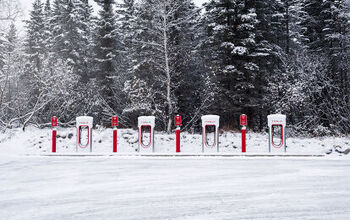You'd Value Your Car More If You Paid Cash For It

Want to feel a real connection to something? Pay cash for it.
Research shows the act of handing over real, honest-to-God paper money and coins for a product has a profound impact on the value a person places in that product. Suddenly, it turns into a possession.
A study published in The Journal of Consumer Research explains the weird phenomenon. Authored by Avni M. Shah (University of Toronto), Noah Eisenkraft (University of North Carolina), James R. Bettman and Tanya L. Chartrand (both Duke University), the study’s findings all relate to pain — the pain of parting with money.
“Using cash or check seems to increase the psychological ‘pain’ or sacrifice of the act and creates more affinity with the product or brand,” the authors wrote.
Cash is hands-on, while credit, debit, or payment plans spirit away your hard-earned money out of sight, and mostly out of mind. It’s the difference between taking out a target with a remotely piloted drone or strafing it low and slow with a nose-mounted 20-millimeter cannon.
Shah tested the effect while she was a doctoral student at Duke. The experiment was easy — sell discounted university mugs to faculty members for $2, with half of the buyers forced to pay with cash and the others with plastic. She then tracked down each buyer and asked to buy them back.
That cheap mug had very different resale values, depending on how the buyer paid. Staff who used a card wanted an average of $3.83 for the mug; those who paid cash $6.71. The mug had a hold on them.
It’s not hard to apply the lesson to new vehicle sales. Departing with a massive chunk of cash in one act is far different than signing a contract and having the money slowly leak out of your bank account over the course of 24, 36, 48, 60, 72 … whatever, you get the picture.
[Source: New York Times] [Image: Frankieleon/ Flickr]

More by Steph Willems
Latest Car Reviews
Read moreLatest Product Reviews
Read moreRecent Comments
- Orange260z I'm facing the "tire aging out" issue as well - the Conti ECS on my 911 have 2017 date codes but have lots (likely >70%) tread remaining. The tires have spent quite little time in the sun, as the car has become a garage queen and has likely had ~10K kms put on in the last 5 years. I did notice that they were getting harder last year, as the car pushes more in corners and the back end breaks loose under heavy acceleration. I'll have to do a careful inspection for cracks when I get the car out for the summer in the coming weeks.
- VoGhost Interesting comments. Back in reality, AV is already here, and the experience to date has been that AV is far safer than most drivers. But I guess your "news" didn't tell you that, for some reason.
- Doc423 Come try to take it, Pal. Environmental Whacko.
- 28-Cars-Later Mazda despite attractive styling has resale issues - 'Yota is always the answer.
- 28-Cars-Later Try again.


































Comments
Join the conversation
Good advice, use the 0 percent or 0.9 percent interest if you quality for it and take care of your vehicle and make it last.
Twenty years ago my wife and I adopted the policy of not buying anything except real estate if we couldn't pay cash or write the check for it. As a practical matter we use credit cards in our daily lives, but we have routinely paid them off in full every month for decades now. No wonder we are still driving 2003 and 2006 vehicles we purchased brand new and wrote checks for. It does really focus the mind :).